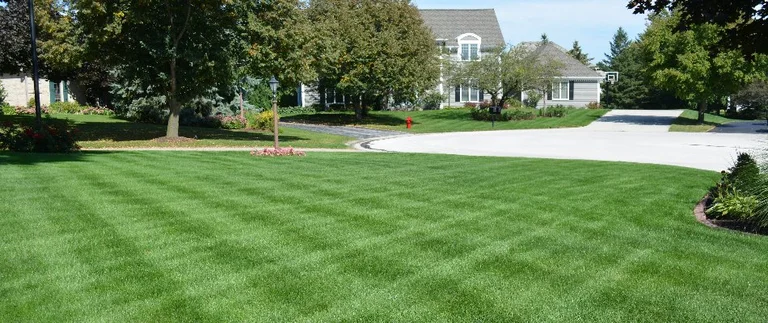Annual and perennial weeds are two types of weeds that can be found in lawns in Colorado. While both types of weeds can be a nuisance, they have different growth habits and require different control methods. Annual weeds complete their life cycle in one year. This means they germinate, grow, flower, produce seeds, and die all within the span of a year. Some common examples of annual weeds include crabgrass, chickweed, and henbit.
Meanwhile, perennial weeds live for several years. These weeds have deep root systems where their energy is stored, allowing their aboveground parts to go dormant or die back in the winter and reemerge in the spring. Understanding the differences between annual and perennial weeds is the first step to effectively managing weed infestations. The best way to control weed growth on your lawn is by enrolling in a weed control program!
What are annual weeds?
Annual weeds are plants that complete their life cycle in one year. They germinate from seeds, grow, flower, produce seeds, and die within a single year. Common examples of annual weeds include crabgrass, chickweed, and henbit. These weeds are often fast-growing and can quickly take over lawns and gardens if not controlled.
Annual weeds typically germinate in the spring or summer, depending on the specific type of weed. They thrive in warm temperatures and can quickly spread throughout a lawn or garden. Because they reproduce from seeds, controlling annual weeds often involves preventing them from setting seeds in the first place.
What are perennial weeds?
Perennial weeds are plants that live for more than two years. Unlike annual weeds, which die after one growing season, perennial weeds can survive and reproduce year after year. Common examples of perennial weeds include dandelions, clover, and plantain. During their dormant period, the aboveground parts of perennial weeds can die back. However, these weeds often have deep root systems that allow them to do that and regrow the following year.
Perennial weeds can be more challenging to control than annual weeds because they can regrow from their roots even after being cut or mowed. Controlling perennial weeds often involves targeting their root systems to prevent them from regrowing.
Perennial weeds have deep root systems that allow them to regrow.
What is the best way to control annual and perennial weeds on your lawn?
Controlling annual and perennial weeds requires different approaches. For annual weeds, the goal is to prevent them from setting seeds and spreading. Meanwhile, controlling perennial weeds often involves targeting their root systems. Whether your lawn is infested with annual or perennial weeds, the best and most efficient way to control their growth is by enrolling in a weed control program.
A weed control program will include pre- and post-emergent treatments administered regularly during the growing season. Pre-emergent weed control treatments are designed to create a barrier in the soil that will stop newly germinated weeds from sprouting. Meanwhile, post-emergent treatments will get rid of existing weeds that are already invading your lawn and stealing nutrients from it. Whether you have annual or perennial weeds, these treatments will target weeds at both ends of their life cycle, providing comprehensive coverage!
Give us a call today to enroll in our weed control service!
Annual and perennial weeds are two types of weeds that can invade your turf and take nutrients away from your grass. Here at Mesa Turf Masters, we offer a weed control service that will keep weeds away from your lawn! This service includes several applications of pre- and post-emergent weed control treatments during the growing season to continuously target these pesky intruders and keep them from taking over your turf. These treatments target various annual and perennial weeds, like dandelions, crabgrass, chickweed, and more.
We offer our weed control service to properties in and around Grand Junction, Fruita, and Palisade, CO. Call us today at (970) 434-5440 to enroll!

